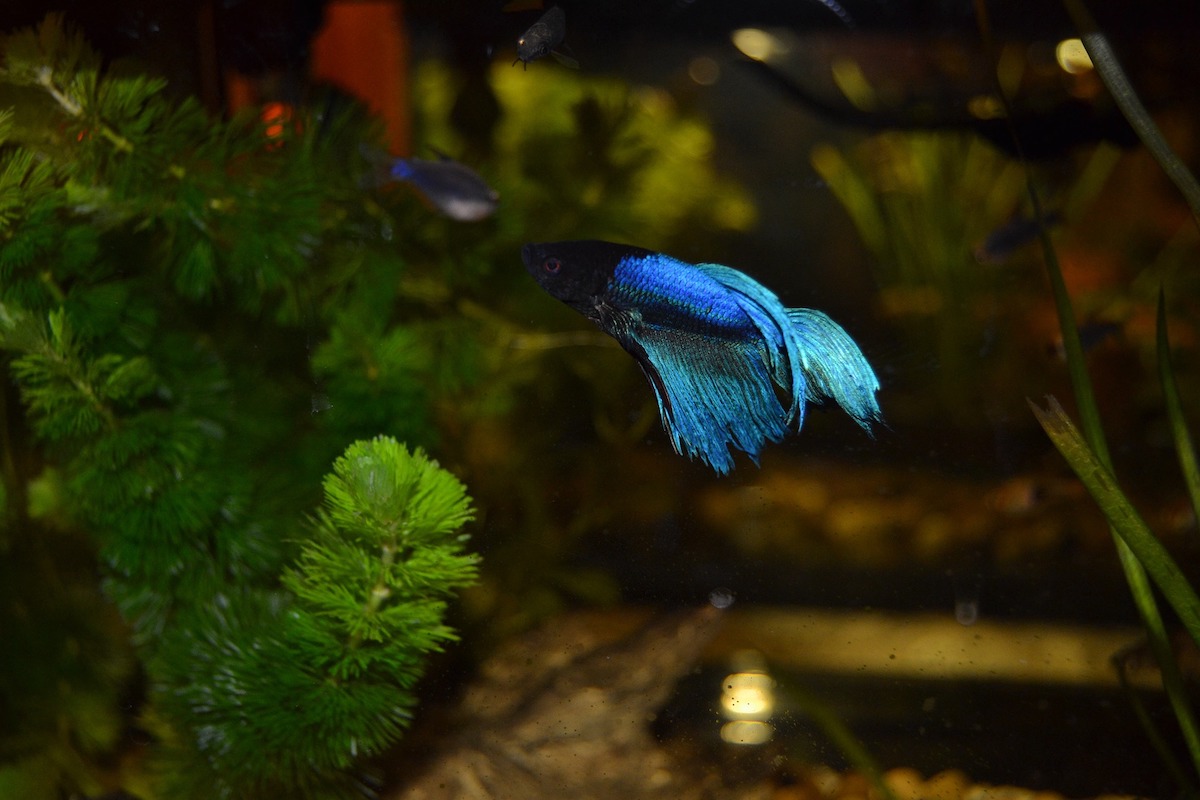Maxwell Adams is a veterinarian specializing in aquatic pets. His medical expertise and compassionate approach to pet care make his articles a valuable resource for Betta Fisher's readers.
Welcome to the fascinating world of baby betta fish care! While caring for these vibrant creatures is similar to adult betta fish, there are some key differences to consider. Baby bettas, or fry, require a more meticulous approach to ensure they grow into healthy, vibrant adults. Understanding the unique traits and care requirements of betta fish can help you provide the best care for your baby bettas.
Just like a newborn baby, a baby betta fish has specific needs that differ from their adult counterparts. Their diet, habitat, and health monitoring require special attention. Do you know that the optimal betta fish tank setup for a baby is different from an adult's? It's true!
Creating the best tank setup for betta fish when they are babies involves considering factors such as water temperature, pH levels, and tank size. Baby bettas also need a habitat that mimics their natural environment in the wild as closely as possible. This includes plenty of hiding spots and a gentle water flow. Learning about the habitat of Koi Betta Fish can give you insights into setting up a natural environment for your baby bettas.
So, are you ready to dive into the specifics of baby betta fish care? Let's get started on this journey together, ensuring your baby betta fish grows into a healthy, happy adult.
Feeding Your Baby Betta: A Guide to Nutritious Meals 🐠
When it comes to baby betta fish care, feeding is a crucial aspect. Unlike their adult counterparts, baby bettas require a diet rich in protein to support their rapid growth. Live foods such as micro worms, vinegar eels, and baby brine shrimp are excellent choices. If live foods aren't available, high-quality betta pellets or flakes can be crushed into tiny pieces for easier consumption. To learn more about feeding your betta fish, check out our guide on betta fish dietary needs.
How often should you feed your baby betta? Aim for small, frequent meals - ideally, three to four times a day. Remember, their stomachs are about the size of their eyes, so a little goes a long way. Overfeeding can lead to health issues and pollute your optimal betta fish tank setup, so moderation is key. For more tips on betta fish care, visit our guide on enhancing betta fish lifespan.
Speaking of betta tank setups, did you know that the best tank set up for betta fish mimics their natural habitat in the wild? This includes plenty of hiding spots and a gentle flow of water. You can learn more about this in our article on wild betta fish habitats. But for now, let's keep our focus on feeding and remember - a well-fed baby betta is a happy and healthy betta!
Creating a Perfect Betta Nursery: Optimal Tank Setup 🌊
When it comes to baby betta fish care, creating the optimal betta fish tank setup is crucial. Baby bettas, just like their adult counterparts, thrive in warm water. Maintain a water temperature between 78 and 80 degrees Fahrenheit. A sudden drop or rise can stress them, potentially leading to health issues.
Next, let's talk about pH levels. Betta fish prefer slightly acidic to neutral water, so aim for a pH between 6.5 and 7.5. Regular testing will help you maintain these levels.
As for tank size, while bettas are known for their ability to survive in small spaces, a larger tank is always better. For baby bettas, a 2.5 to 5-gallon tank is ideal. It provides enough room for growth and exploration, mimicking their natural habitat in the wild.
Lastly, don't underestimate the importance of regular water changes. Clean water is vital for the health of your baby betta. Aim for a 20% water change every week. This helps to remove waste and prevent the buildup of harmful chemicals, ensuring your baby betta has the best betta tank setup for their growth and wellbeing.

Keeping Your Baby Betta Happy and Healthy: Signs to Watch For 🏥
Just like us, baby Betta fish show signs of good health that you can easily spot. A healthy baby Betta will be active, with bright colors and clear eyes. They'll also have a good appetite and show curiosity about their environment. It's important to note that each Betta has its own personality, so what's normal for one might not be for another. Always keep an eye on their behavior for any sudden changes.
Unfortunately, baby Bettas are prone to certain illnesses. Common ones include fin rot, a condition that causes their fins to fray or disintegrate, and white spot disease, which results in small white spots on their body. If you notice these or other symptoms, it's time to seek professional help. Remember, early detection and treatment can make a world of difference.
Understanding the ideal betta tank setup is crucial in baby betta fish care. A perfect betta tank setup mimics the betta fish habitat in the wild, providing the right conditions for your baby Betta to thrive. So, are you ready to create the best home for your baby Betta?
To help you understand better, here's a video that provides comprehensive care tips specifically for baby Betta fish.
The video above provides an excellent visual guide to caring for baby Betta fish. It's important to remember that every Betta fish is unique and may require slightly different care. Always monitor your fish closely and adjust your care routine as necessary to ensure their health and happiness.
















































